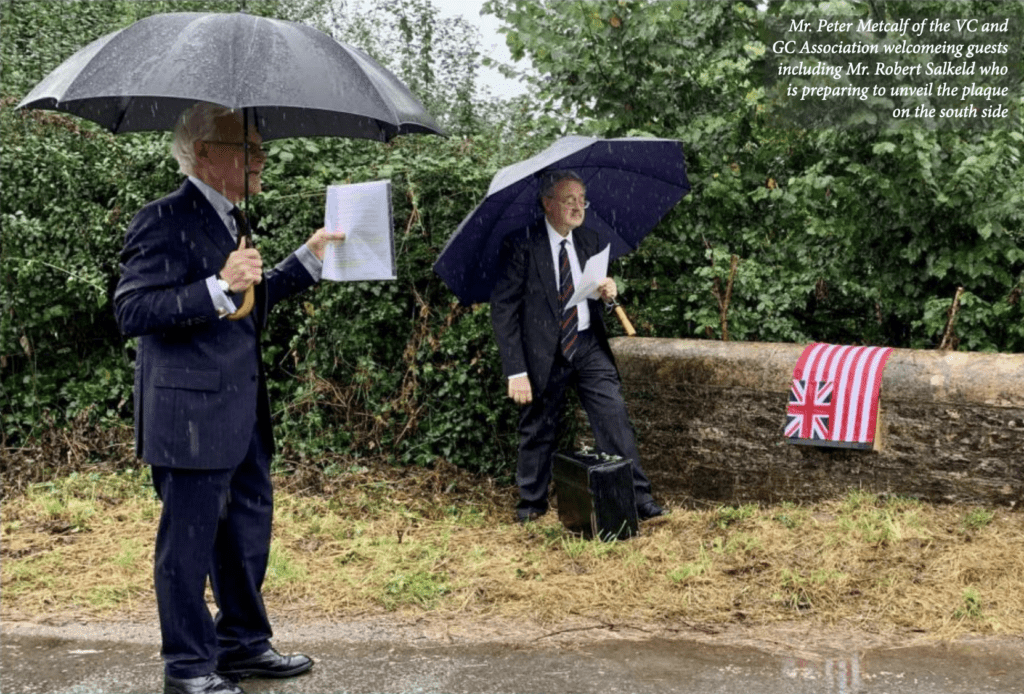A young Dorset army officer, severely wounded during the 1857 Indian Mutiny, succeeded in leading women and children to safety despite being under constant rifle and shell-fire.
The 27 year-old hero, raised in Fontmell Magna, where his father was vicar, became the first man to posthumously win the Victoria Cross, the highest medal for courage in the face of the enemy.

Ltd Philip Salkeld had his arm amputated without anaesthetic and it is thought that the shock and insanitary conditions of an impromptu casualty station, during a battle, led to his slow and agonising death.
Lt Salkeld’s courage was commemorated at a small and solemn occasion last month as a plaque in his name was revealed at Salkeld Bridge near Plumber Manor, close to Sturminster Newton, causing a slight delay to traffic.
The bridge was chosen to reflect the dead hero’s job in the Bengal Engineers as his life was dedicated to civil construction.
He was also a dedicated family man who had saved £1,000 (£108,000 in today’s money) to support his younger brother’s education. Unfortunately his savings were looted from the London and Delhi Bank in India’s capital.

However a public fund was established for his brother’s education which was generously over-subscribed and a memorial was erected to him in Fontmell Magna at his father’s church.
Last month’s ceremony was attended by Lt Salkeld’s great-great nephew Robert Salkeld and Sara Jones CBE, widow of Lt Col ‘H’ Jones of the Dorset Regiment who received a posthumous VC in the 1982 Falkland’s Conflict.
Exceptional courage
Ltd Salkeld’s exploits in what India calls The First War of Independence reads like a Boy’s Own story.
When the uprising broke out the rebels ran amok killing all the Europeans they could find. He narrowly escaped death in the early rioting and found himself with survivors near the Kashmir Gate. With the enemy closing in, he led a group to the top of the bastion and ingeniously formed an escape ‘rope’ from linked leather sword belts. Under heavy fire they managed to escape, meeting up with more soldiers, including a Lt George Forrest (who also won a VC) who was in a state of shock having been shot through the hand. Also in the party was Lt Forrest’s wife, who had been shot in the shoulder, and his three young daughters, the youngest being nine.

The party waded across the Ganges Canal, the River Jumna and were robbed by bandits. Lt Salkeld made the journey barefoot having given his shoes to one of the young girls.
Having delivered to dishevelled group to safety, the exhausted Lt Salkeld returned to the battle and was severely wounded in a huge explosion when he led a group of soldiers to re-take the Kashmir Gate. He died in acute pain in the early hours of 10th October 1857.
By: Andy Palmer


